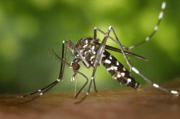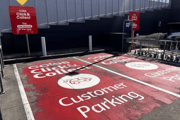Small businesses reveal surprising reason why they're going cashless
In this digital age, we've seen quite a few changes that have truly reshaped our lives—like the gradual shift to a cashless society.
But while online transactions are convenient for some, there are still those who prefer to use cash in their purchases.
More and more merchants are accepting both cash and digital payments. However, some are looking into eliminating cash transactions completely.
Small businesses in Queensland are transitioning to exclusively digital payment systems for a reason that's left many in shock.
Annee’s, a coffee franchise with five cafes across North Queensland, is among the businesses moving away from cash, making the decision out of a need to protect their staff.
The cafe’s owner,wner Annee Nguyen, told a news source that she had been pushed into the decision after a break-in, which included their shared space with young team members being vandalised.
Others, however, are still afraid to make the move out of fear that they'll lose customers—despite cash transactions having dropped significantly post-pandemic.
But for businesses targeted by criminal activity, going cashless could be the best solution to keep them and their staff safe.
In July, Tribe Coffee Co.’s Ascot store was allegedly robbed at gunpoint by a group of teenagers.
Police allege that the teens had targeted the cafe as their third stop on a 12-hour crime spree, and when they demanded a female employee to open the cafe with a rifle and pistol, she refused.
However, the teens still ended up taking her bag and running off.
After the incident, the female staff asked not to work at the Ascot branch. ‘You want to provide your team with a safe workplace, but things like this happen,’ coffee shop owner Mark Hardingham said.
‘It’s pretty demoralising because you build up a business and a reputation with the community, and then you struggle to find staff. Without them, you can’t run it,’ Mr Hardingham expressed.
He added: ‘But the team don’t want to work if they don’t feel safe about working.’
A similar incident happened again in Ascot two weeks ago, but the attempt was unsuccessful.
‘The incident in July was the first that involved a team member, but there’s definitely been an increase in break-ins in the past 12-18 months,’ Mr Hardingham shared.
‘Someone attempts to get into one of my sites probably every 2-3 months. Nine times out of ten, it’s just kids being a nuisance…but it’s getting worse,’ he stated.
But despite these, Mr Hardingham will still accept cash payments in his stores.
‘I’d stir the pot and lose customers,’ he said. ‘Those paying in cash tend to be older people, and because of the area it’s in, one of my cafes has an older demographic.’
‘A lot of them would just turn around and tell me where to go, politely,’ he added.
He also mentioned that he ‘100 per cent understands’ why other businesses would make the move to digital payments: ‘My transactions are small; the most I would ever keep on site would be $400, but I can empathise with why those taking in more cash would want to.’
Fewer customers than ever are handling cash, and some businesses are considering if it’s worth removing it to deter opportunistic crime.
The Reserve Bank of Australia (RBA) claimed that cash payments went from 32 per cent to 16 per cent in in-person transactions over the three years to 2022.
They cited the COVID-19 pandemic as the reason for the sudden drop, saying it ‘accelerated the decline that had been underway since at least the first (survey) in 2007’.
The RBA also pointed out that one-quarter of the population will experience ‘genuine hardship’ if cash becomes difficult to use.
‘This suggests that cash remains essential in the lives of some Australians, albeit a shrinking proportion,’ the RBA declared in its June 2023 Bulletin.
In fact, Macquarie Bank has recently announced that it will phase out cash across all its branches by November 2024 as digital payment systems take their place.
SDC members expressed their concerns about this development. Member @Clancieblue wrote: ‘So, what happens to people who don't have access to the internet or phone to transfer funds? Many elderly people can't use technology, and we are assuming everyone has technology at home.’
‘They won't care what we think, but it's disgraceful that cash options are being removed! So many reasons it should stay & so few why it should go! So unfair on so many people!’ member @Cheezil pointed out.
Member @maggiej shared: ‘The trouble with the cashless society is when there is a problem with the electricity that controls all these cashless transactions.’
‘We had been out to dinner at a restaurant in Denver with a friend, I had seen something else they were selling and decided to buy this when paying for our dinner. Unfortunately, they had a blackout after we had eaten (lucky for us) We could not pay, and I could not buy the item because, in the US, they add a surcharge like our GST. The machines could not work with no power, so the staff did not know what the added charge would be otherwise, they would have accepted the payment in cash.’
‘The meal was lovely, and the owner came out to tell us and to give those that had eaten there was no charge for the meal, but those that had not eaten unfortunately they could not serve them. Just look what will happen in the future with this cashless way of living,’ they continued.
Member @Glenys R commented: ‘As an older person, I hate the thought of no cash and no cheques. I do not have a smartphone, do not know what an app is and struggle to use my old computer. I also live out in the country and do not drive. Life seems to be getting harder for the old!’

Do you prefer cash or digital transactions? Let us know in the comments below!
But while online transactions are convenient for some, there are still those who prefer to use cash in their purchases.
More and more merchants are accepting both cash and digital payments. However, some are looking into eliminating cash transactions completely.
Small businesses in Queensland are transitioning to exclusively digital payment systems for a reason that's left many in shock.
Annee’s, a coffee franchise with five cafes across North Queensland, is among the businesses moving away from cash, making the decision out of a need to protect their staff.
The cafe’s owner,wner Annee Nguyen, told a news source that she had been pushed into the decision after a break-in, which included their shared space with young team members being vandalised.
Others, however, are still afraid to make the move out of fear that they'll lose customers—despite cash transactions having dropped significantly post-pandemic.
But for businesses targeted by criminal activity, going cashless could be the best solution to keep them and their staff safe.
In July, Tribe Coffee Co.’s Ascot store was allegedly robbed at gunpoint by a group of teenagers.
Police allege that the teens had targeted the cafe as their third stop on a 12-hour crime spree, and when they demanded a female employee to open the cafe with a rifle and pistol, she refused.
However, the teens still ended up taking her bag and running off.
After the incident, the female staff asked not to work at the Ascot branch. ‘You want to provide your team with a safe workplace, but things like this happen,’ coffee shop owner Mark Hardingham said.
‘It’s pretty demoralising because you build up a business and a reputation with the community, and then you struggle to find staff. Without them, you can’t run it,’ Mr Hardingham expressed.
He added: ‘But the team don’t want to work if they don’t feel safe about working.’
A similar incident happened again in Ascot two weeks ago, but the attempt was unsuccessful.
‘The incident in July was the first that involved a team member, but there’s definitely been an increase in break-ins in the past 12-18 months,’ Mr Hardingham shared.
‘Someone attempts to get into one of my sites probably every 2-3 months. Nine times out of ten, it’s just kids being a nuisance…but it’s getting worse,’ he stated.
But despite these, Mr Hardingham will still accept cash payments in his stores.
‘I’d stir the pot and lose customers,’ he said. ‘Those paying in cash tend to be older people, and because of the area it’s in, one of my cafes has an older demographic.’
‘A lot of them would just turn around and tell me where to go, politely,’ he added.
He also mentioned that he ‘100 per cent understands’ why other businesses would make the move to digital payments: ‘My transactions are small; the most I would ever keep on site would be $400, but I can empathise with why those taking in more cash would want to.’
Fewer customers than ever are handling cash, and some businesses are considering if it’s worth removing it to deter opportunistic crime.
The Reserve Bank of Australia (RBA) claimed that cash payments went from 32 per cent to 16 per cent in in-person transactions over the three years to 2022.
They cited the COVID-19 pandemic as the reason for the sudden drop, saying it ‘accelerated the decline that had been underway since at least the first (survey) in 2007’.
The RBA also pointed out that one-quarter of the population will experience ‘genuine hardship’ if cash becomes difficult to use.
‘This suggests that cash remains essential in the lives of some Australians, albeit a shrinking proportion,’ the RBA declared in its June 2023 Bulletin.
In fact, Macquarie Bank has recently announced that it will phase out cash across all its branches by November 2024 as digital payment systems take their place.
SDC members expressed their concerns about this development. Member @Clancieblue wrote: ‘So, what happens to people who don't have access to the internet or phone to transfer funds? Many elderly people can't use technology, and we are assuming everyone has technology at home.’
‘They won't care what we think, but it's disgraceful that cash options are being removed! So many reasons it should stay & so few why it should go! So unfair on so many people!’ member @Cheezil pointed out.
Member @maggiej shared: ‘The trouble with the cashless society is when there is a problem with the electricity that controls all these cashless transactions.’
‘We had been out to dinner at a restaurant in Denver with a friend, I had seen something else they were selling and decided to buy this when paying for our dinner. Unfortunately, they had a blackout after we had eaten (lucky for us) We could not pay, and I could not buy the item because, in the US, they add a surcharge like our GST. The machines could not work with no power, so the staff did not know what the added charge would be otherwise, they would have accepted the payment in cash.’
‘The meal was lovely, and the owner came out to tell us and to give those that had eaten there was no charge for the meal, but those that had not eaten unfortunately they could not serve them. Just look what will happen in the future with this cashless way of living,’ they continued.
Member @Glenys R commented: ‘As an older person, I hate the thought of no cash and no cheques. I do not have a smartphone, do not know what an app is and struggle to use my old computer. I also live out in the country and do not drive. Life seems to be getting harder for the old!’
Key Takeaways
- Small businesses in Queensland are considering going cashless as a security measure to protect their staff from criminal activity.
- Coffee franchise Annee’s is transitioning to a cashless model following a break-in. However, other businesses fear the move could lead to customer loss, like Tribe Coffee Co.
- Cash payments have fallen significantly over recent years, with COVID-19 accelerating the decline. The Reserve Bank of Australia reported cash payments dropped from 32 per cent to 16 per cent of in-person transactions from 2019 to 2022.
- Despite the decline, cash remains essential for some Australians, with more than a quarter of the population expected to face hardship if cash use becomes difficult.
Do you prefer cash or digital transactions? Let us know in the comments below!









